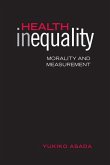Health care in the United States has made remarkable advances during the past fifty years. Yet our health care system also has several well-known problems: high costs, significant numbers of people without insurance, and glaring gaps in quality and efficiency, all of which are the unintended consequences of a handful of public policies. Those policies share a common feature, now amplified by the Patient Protection and Affordable Care Act: they fail to promote the proper functioning of markets. In this book, the authors offer market-based alternatives to recent health care reforms that can slow the rate of growth of health care costs, expand access to high-quality health care, and slow down runaway spending. They first outline the challenge facing public policy: retaining and continuing to achieve gains to society from the US health care system and minimizing its costs, both financial and otherwise. They then propose a market-based approach to accomplishing those goals, explaining why the most important problems with our health care system are due to five flawed public policies and showing how five sets of specific reforms can correct those flaws. They conclude by quantifying the expected consequences of their reforms, based on estimates of how consumers and providers have responded to past changes in markets for health care. Since the book's first edition was published, the authors have conducted additional research on the consequences of tax policy for health spending and health insurance. They present that work, along with updated estimates of the impact of their proposals on the federal budget, the number of insured, and health care spending. In combination, the reforms proposed in this book will reduce health care costs by approximately $90 billion per year without reducing the quality of care and will also improve the system's productivity, fairness, and responsiveness. The time to implement sensible reforms is now. Failure to do so will inevitably increase the pressure for more public intervention, with adverse consequences for the quality of health care and, more broadly, our country's economic growth.
Hinweis: Dieser Artikel kann nur an eine deutsche Lieferadresse ausgeliefert werden.
Hinweis: Dieser Artikel kann nur an eine deutsche Lieferadresse ausgeliefert werden.








